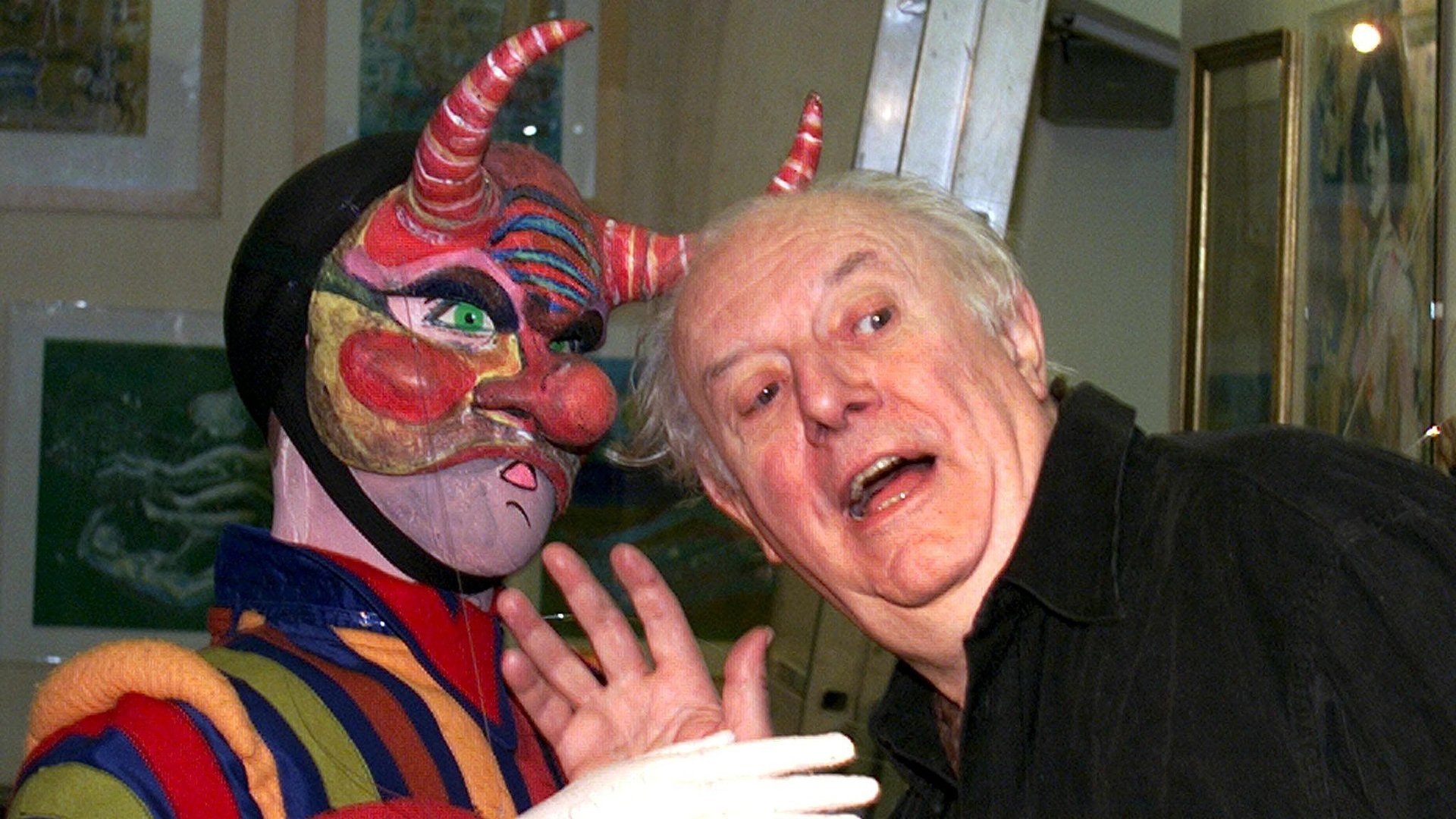Playwright, Nobel Prize winner, and unapologetic jester Dario Fo has died at age 90
Playwright Dario Fo, who died in Milan, Italy, today (Oct. 13) at age 90, was many things. An actor, a singer, a writer, a public intellectual, a political activist, an anti-fascist, a failed architect, a stage director, a designer, a painter. He was a grateful husband and partner, who never failed to acknowledge the instrumental role his wife, playwright, actress, and feminist activist Franca Rame, played in his achievements. He was a father. He was an enthusiastic man who described himself and his life as ”extraordinarily lucky.”


Playwright Dario Fo, who died in Milan, Italy, today (Oct. 13) at age 90, was many things. An actor, a singer, a writer, a public intellectual, a political activist, an anti-fascist, a failed architect, a stage director, a designer, a painter. He was a grateful husband and partner, who never failed to acknowledge the instrumental role his wife, playwright, actress, and feminist activist Franca Rame, played in his achievements. He was a father. He was an enthusiastic man who described himself and his life as ”extraordinarily lucky.”
But perhaps the best word that explains his stature was the one he used to describe himself: giullare—or jester.
Fo’s work was about laughing at life and fighting its horrors with humor. He knew that jokes cut deeper than insults, and that there is nothing as life-affirming as laughter. He was a giant, and in a society that imagines genius as tormented and cynical, he dared being funny—the funniest.
He didn’t deem anything too sacred to be ridiculed, included, himself, seemingly always aware of life as a kind of absurd joke that’s played on all of us. This is perhaps best represented in his masterpiece, Mistero Buffo (Comical Mystery), a long monologue that narrates episodes from Christianity and the life of Jesus. It’s a work that could compel many viewers to laugh until they cry. From one scene in which a drunk manages to replace an angel in telling the story of a miracle, to another in which seats are sold in the cemetery ahead of Jesus’s arrival to bring Lazarus back from the dead, it powerfully shows the way power (in this case, religion) exploits people. It was a comedy so powerful it transcended words—portions of it were in grammelot, a made-up gibberish based on northern Italian dialect—and generated the ire of the Vatican, which called it “the most blasphemous show in the history of television.”
Fo always rejected the idea that the culture of the dominated should be imposed by the dominant class. He consistently criticized mainstream thinking, and his work spared no one: he attacked the church, the hypocrisy of middle class, and the corruption of the powerful. He embodied the Medieval tradition of a jester poking fun of the court and turned it into a modern intellectual device, using his work to ridicule the status quo and its representatives. In return, he was censored. After presenting a series of acts in 1962 based on social issues, including workers’ deaths and corruption, Fo and Rame were banned from national television in Italy for 15 years. Their response: creating more work, and attacking their attackers.
In 1997, Fo was awarded the Nobel Prize for literature for, in the words of the Nobel Prize Committee, ”[emulating] the jesters of the Middle Ages in scourging authority and upholding the dignity of the downtrodden.” Many in Italy respected and celebrated that. Others used the occasion of the prize to revive criticism of the artist—calling his impact too local, and his literary mastery limited. For some, this value judgement overshadowed Fo’s prolific, stunning body of work.
Fo has famously spoken of laughter as the quintessential expression of intelligence (link in Italian). In his last interview with Italian newspaper La Stampa in September, Fo commented with glee on the fact that his work had been banned in Turkey, along with works by William Shakespeare, Anton Cechov, Bertolt Brecht. ”I have to admit it. I feel as if they had given me another Nobel!” he said. A perfect exit from the global stage—where his work will forever survive him, poking fun at the most ridiculous aspect of the powerful, and taking them down, one laugh at a time.